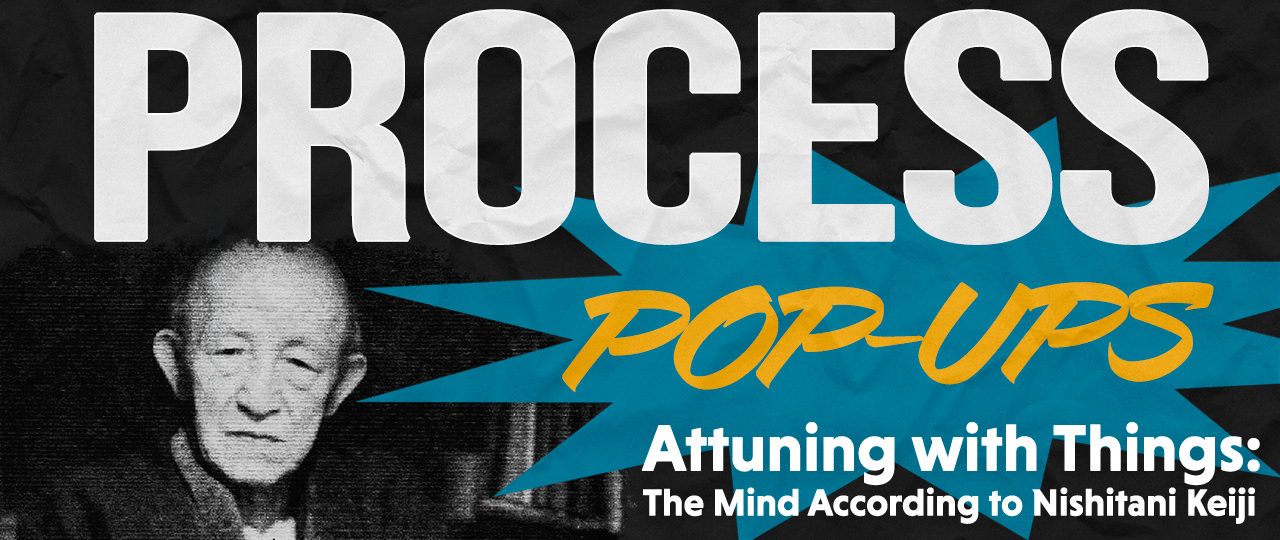

Process Pop-Up: Attuning with Things: The Mind According to Nishitani Keiji

We are not our brains and brains are not computers. The mind is much more than computations. As more than a few authors acknowledge today in the philosophy of mind, the notion that the mind is a computer fails because it makes us ignore the relevance of the body for our mental lives. Yet, we need to go even further: tiles and stones, rivers and valleys, all things participate in the making of an individual mind. Regarding the problem of how we can ever hope to know anything about the world, we should not ask how we can get in contact with things: we already are essentially connected with them. The question is, rather, how we can attune with them so that they can show their real being.
This is the approach presupposed by the Japanese philosopher Nishitani Keiji (1900-1990), one of the main representatives of the Kyoto School. Even though the mind was not explicitly among his main topics of interest, Carlos Barbosa Cepeda believes that we can learn much about the way that Keiji touches upon the topic in his works. Keiji argues that we get to know a certain fact due to the mutual projection of mind and fact. This notion can help us to achieve a vivid (i.e. not merely theoretical/discursive) understanding of who we are, and it can also help us to regain our confidence that we can get to know reality even if we are not professional scientists.
In this Pop-Up, Kyoto School scholar Carlos Barbosa Cepeda will explore Nishitani Keiji’s philosophy of mind, showing how ideas from the Japanese philosopher help us move beyond metaphors of the mind as a computer and achieve a more vivid understanding of who we are.
RSVP required to receive ZOOM info.
About the Facilitator
Carlos Barbosa Cepeda, PhD, is professor of philosophy at Universidad Pedagógica Nacional (Bogotá, Colombia). He is a member of the European Network of Japanese Philosophy (ENOJP) and the Latin-American Association of Intercultural Philosophy (ALAFI). His main research fields are Japanese philosophy and philosophy of religion. Some of his recent published papers include “Nishitani and Environmental Ethics” (2022), “The Interdependent Constitution of Subjectivity and the Socio-ecological Challenges of the 21st-century: An Approach from Dōgen” (2021; in Spanish), and “Nishitani Keiji’s Notion of Mind” (2020).
To reserve your seat and receive the Zoom information, click the Going button and enter your name and email.
Related Events
-
Process Pop-Up: Creation out of Nothing and the Ultimacy of Love
Monday, June 30 @ 12:00 pm - 1:00 pm PDT


